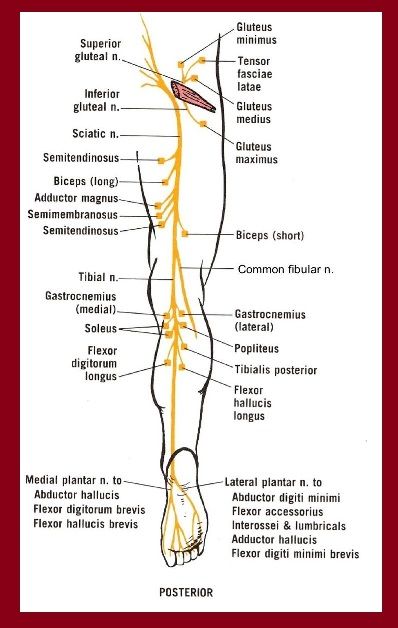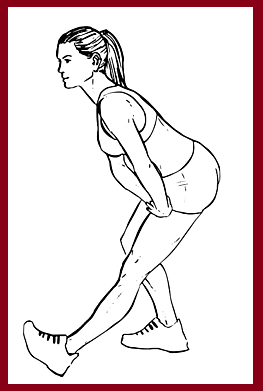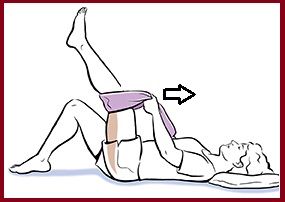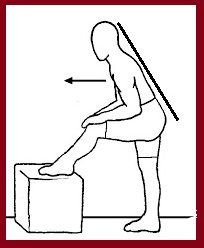Stop Stretching Your Hamstrings Until You Read This!
As a physical therapist I have seen plenty of people stretch their hamstrings and really struggle with it. This is because many of us have an underlying neural tension existing in our sciatic nerve, and stretching the hamstring using conventional methods can really cause discomfort and further tension in the sciatic nerve.
The conventional method of stretching the hamstrings really induces a stretch on too many structures at one time. In this article I hope to point out the differences of stretching the hamstrings versus stretching the hamstrings and neural structures in particular the sciatic nerve.

An Example of the Conventional Hamstring Stretch
Note: this induces a stretch at both the hamstrings and sciatic nerve

For a long time, people have been taught to stretch their hamstrings as such, Keeping the knees straight and reaching for the toes is the staple instruction used in many training institutions.
Another interesting thing to note is that, the conventional hamstring stretch position is also used as an orthopaedic test known as the straight leg raise to screen/test sciatic nerve irritability and lower back issues.
What you shouldn't feel in a stretch:
- Feeling the stretch in the calf
- Feeling the stretch in the back of the knee
- Feeling it in the low back
Feeling the above could mean that the stretch is really just putting tension on the sciatic nerve; there could be neural tension where the sciatic nerve is reluctant to lengthen, underlying lower back condition that is restricting mobility, very tight calf muscles. This can aggravate the nerve over prolonged periods of time - can result in numbness and even pins and needles in the leg when done for too long.
Ideally, the stretch for the hamstrings should be felt in the middle of the hamstring muscle belly. So the next time you stretch, try this instead.
Keep your ankle plantar flexed (angle your foot downwards), keep your knee slightly bent and very gradually tilt forwards with a neutral spine (back slightly straight). If you still experience the stretch in your knees try bending the knee more and tilt further forwards.
Points to Remember:
- Keep your Ankles Plantar Flexed (like pushing down on your car pedal)
- Keep your knee slightly bent
- Come forwards with an anterior pelvic tilt (keep a neutral spine and hinge at the hip)


Lastly, it may be useful for you to visit your Physiotherapist or Physical Therapist should you find it difficult to perform the stretch without placing tension on the lower back or nerve. It may be that some treatment is needed to resolve an underlying issue with the back.
Hope this article was helpful! Let me know what you think!
It'll be good if anyone here could also share some helpful tips on stretching the hamstrings.
Welcome to Steemit.I hope you will have fun. Meanwhile you can follow me and upvote if you wish @myhealth
hey wayne i sent your a message, wade
Hey Wade! Received your e-mail. Thanks for reaching out. Definitely keep in touch!